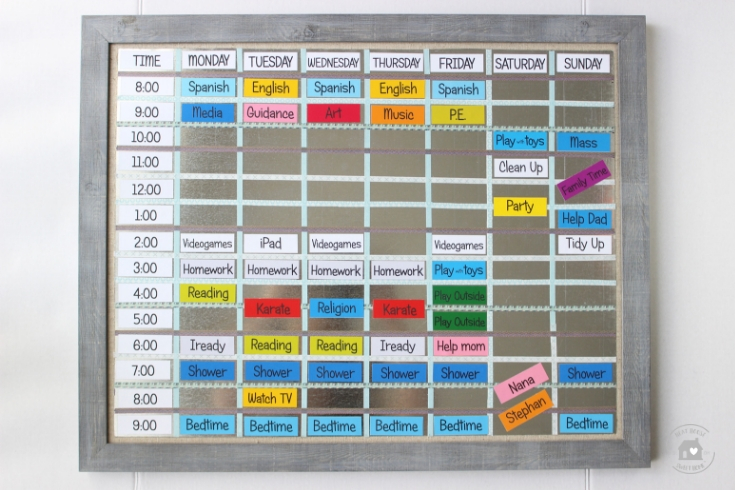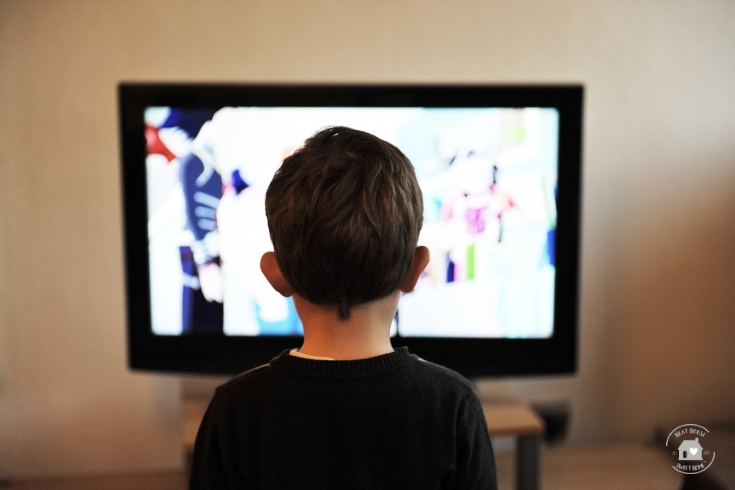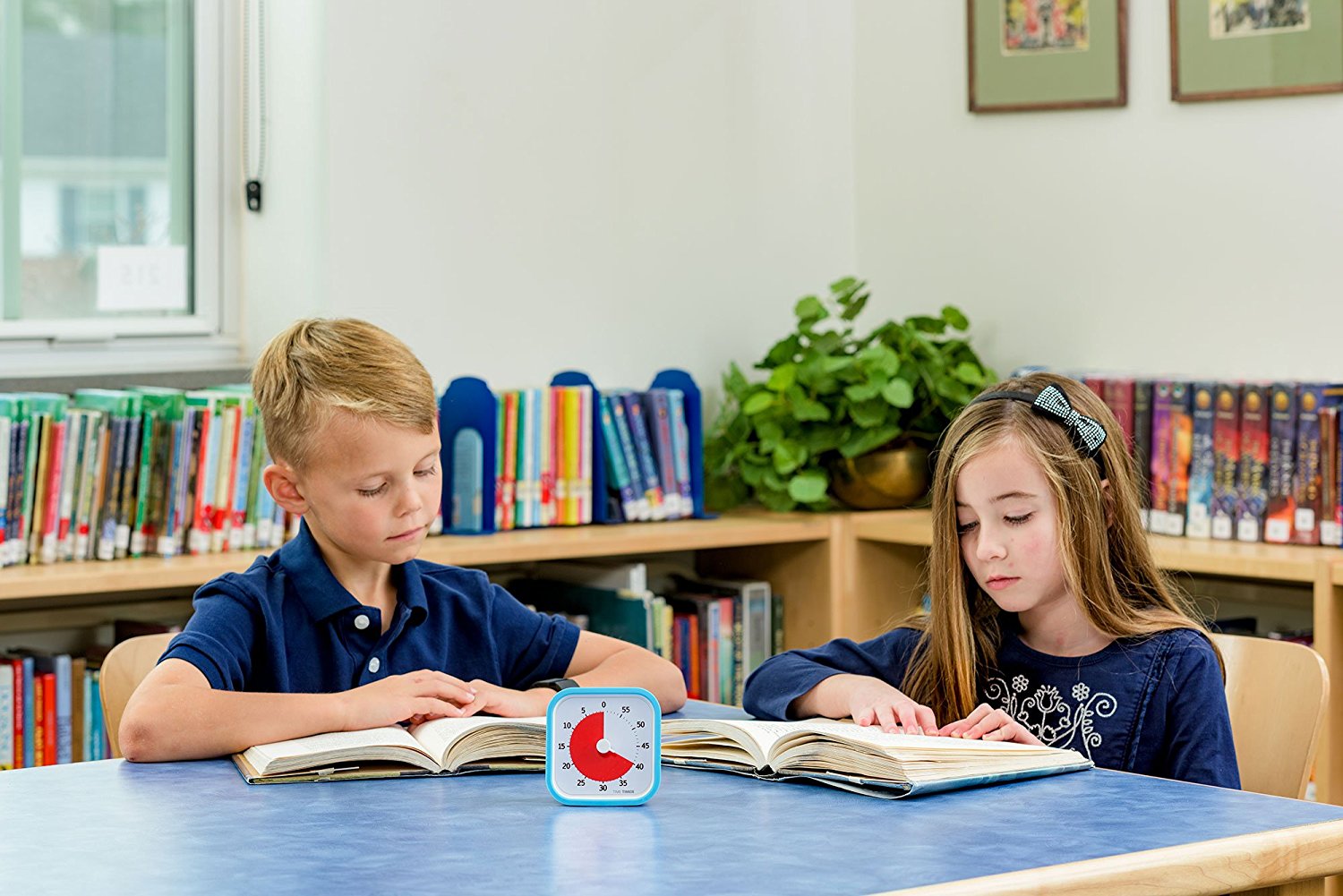10 Tips to Help Your Child Focus and Concentrate
Disclaimer: I am not a teacher, nor a health professional. These are my personal mom tips and ideas that can provide simple and natural
In an era of busyness, noises, electronics, notifications, and what not, our adult mind wanders and multitasks like nobody’s business. Now, imagine how hard it is for a child’s mind to manage all these distractions and then some.
Making my son concentrate on the littlest tasks is a battle I fight constantly, especially during homework time. So, I made some research and narrowed it down to 10 tips that can help my child focus and concentrate.
1. Create a Routine
If you have read my blog before, you know that I am a big advocate of creating routines that can become the foundation of healthy habits. In order to ease a child into starting, focusing on, and completing a task, setting a routine is the first thing in line.

Last year, I created a magnetic board schedule that helps our son understand time management. This visual aid allows him to see what are the activities of the day
With a set routine, you and your child know when to do what you need to do. No more guessing or trying to find time to do tasks.
2. Cancel all Noises
As a writer and a heavy thinker, I know for a fact that a silent room helps my focus and concentration more than anything. When it comes to homework time with my son, all noises are canceled.

TV is off, and electronics are put away. Even my phone is set to silent. Some people, including kids, focus and concentrate better while listening to white noise, or instrumental music. Try either way and see what works best for you.
3. Stop Multitasking
This tip first goes to the parent. Don’t expect your child to focus and concentrate on the task on
While I am an advocate for using time wisely (I like to prep dinner while my son does his math homework), I learned the hard way that in certain cases I was adding more distractions to our environment. I was guilty of opening my laptop or checking my phone in front of him. That was just bad!
Find your sweet spot. For us, when it comes to math, he’s better off sitting by himself working on the task. So, I can be cleaning out the kitchen counters, or chopping some vegetables. But, for reading comprehension, he needs me to be present at all times. Nothing on the table but his reading paper and me.
4. Break Down the Task
Kindergarten was a breeze, first grade was easy, second grade was challenging, third grade is ‘game on’! With all kinds of homework and
In line with stopping multitasking, in order to improve child focus and concentration, break down the tasks. If my son brings two types of homework (say, math and science). I let him pick his favorite subject first, and set the other papers aside.
Let’s face it, we all have the same 24 hours. And chances are you too have extra-curricular activities, a personal project to finish, and more than one child to attend to. So, don’t try to do it all. Start with the activity that you know your child enjoys (and understands the most) to move faster on the timeline.
After that task is completed, you can decide if you have time to move on to the next, or if your child needs to take a break.
5. Set a Timer
Setting a timer is one of the most powerful tools you can use to help your child focus and concentrate on whatever thing she’s doing.
We are using this 60-minute visual timer. As time expires, the red disk disappears in clockwise direction.

Kids are naturally competitive, and setting a timer creates a sense of urgency to beat the clock that helps them get things done faster. Now, don’t get me wrong. You don’t want to rush your child and make him anxious. That is the last thing you want to happen.
There’s 3 reasons why you should set a timer:
- It will teach your child to see clearly how much time she’s spending on a particular task.
- It will help you keep track of how much time in all you’re dedicating to all tasks.
- It will help you both to plan for
much-needed breaks (see tip #6).
6. Take Breaks
Every kid is naturally energetic and distracted, and we can not expect our children to be focused and concentrated at all times. So, along with setting a timer to track the time spent on tasks, set timers for breaks.
By trial and error, I have seen a lot of improvement in my son’s attitude towards homework, when we work in 15-minute blocks with 5-minute breaks.

During the break, I let him stand up,
7. Offer Positive Reinforcement
This tip goes with no saying. It’s very natural for us parents to tell our children that they will lose their rewards if they don’t do this or that. But negative reinforcement (punishment) is very detrimental.
Kids look forward to playdates, outdoors time, screen time, or a favorite treat. Positive reinforcement is proven to be the best incentive to promote their focus and concentration. No child will be motivated, nor focused on the task if she’s been threatened to have something taken away from her.

Since I can’t punish myself (or can I?), I practice positive reinforcement all the time when it comes to complete my work. I feel motivated and focused when I look forward to a good cup of coffee with my friends or simple activities like going out for a walk
8. Stay Calm and Talk to Their Level
Oh, it is so easy to lose it. Right? Because in our adult mind, reading comprehension, adding, subtracting, or multiplying comes
A child can’t be focused or concentrated if he/she doesn’t understand the words he’s reading or the math problem that’s been presented to them. Talk to their level, with words that they understand.
They. are. children. They have never read a question like: What is the moral of the fable?. So, take your time to understand that they do not know it all and they need you to guide them in a calm manner.
9. Make Eye Contact
Along with staying calm, it is important to make eye contact with your child whenever you are explaining something or giving directions to perform a task.
The number one sign that exposes my son’s lack of focus, is the absence of eye contact. Whenever I need him to do something I start with the words: ‘Look at me’. Once I get his attention I give him a detailed direction, usually composed of no more than three steps.

I.e: Logan, look at me (or, come over here). Please, go upstairs, put these pants in your drawer, and bring down the white bag I left in the hallway.
Practice the same type of directions when you’re helping your child with homework.
10. Explain, Repeat, and Wait
To prove your child’s concentration and focus, follow this short routine every time she’s working on a task.
- Explain the task. Tell her what you expect her to do. Whether it’s helping with a house chore or completing a math exercise on their homework, explain what she needs to do.
- Ask your child to repeat back to you what you just explained to her. It’s as simple as that.
- Wait for a response. Be patient and wait for your child to process the instruction, repeat the instruction back to you, and give her time to give you a response, complete the task, and most likely ask you a question.

The Best Advice to Help Your Child Focus and Concentrate
To help your child focus and start walking down the concentration path, the most important piece of the puzzle is to offer her your time and all of your attention. After all, we can’t expect them to be focused and alert if we do not give them the gift of attention ourselves.
You can try all of these tips or just a few. Just start somewhere and see what works best for you and your child’s needs.
But the most important thing of all is, lead by example.

